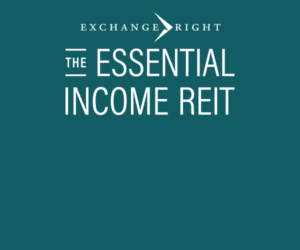Johnathan Rickman | Blue Vault
Alternative investments refer to a broad category of assets that extend beyond conventional investments like stocks, bonds, and cash. Alts can include private equity, private credit, venture capital, real property, or even commodities like oil and natural gas.
Innovations in fund structures have expanded retail access to debt and other types of private assets, but investing in energy resources is a little more nuanced as it can also potentially involve owning the rights to the minerals you’re investing in.
1031 Exchanges
Because oil and gas are considered real property on par with hotels and warehouses, they are thus “like-kind” to traditional real estate assets and qualify for tax-advantaged 1031 exchanges. That’s according to Resource Royalty CEO Beth Good, who explains in an April 22 Forbes article how her firm creates mineral portfolio strategies tailormade for adventurous, accredited real estate investors.
Section 1031 of the Internal Revenue Code allows an investor to defer the payment of capital gains taxes that may arise from the sale of a business or investment property. By using the proceeds of the sale to purchase “like-kind” real estate, taxes may be deferred, as long as the investor satisfies certain conditions.
The Forbes article, written by Fred Hubler — Chief Wealth Strategist at Creative Capital Wealth Management Group and Blue Vault Wealth Advisor Board Member — also explains how citizen-owned mineral rights are a phenomenon unique to the United States.
Qualified Opportunity Zones
Another avenue for investing in private oil and gas assets, albeit without mineral ownership, involves qualified opportunity zone (QOZ) funds. There are multiple locations in the United States that are federally designated as qualified opportunity zones that contain mineral resources, according to an April 3 Kiplinger article.
Qualified opportunity zones provide tax benefits to investors by deferring taxes on prior gains invested in a QOZ fund — an investment vehicle organized as a corporation or a partnership for the purpose of investing in certain QOZ property.
Learn More and Take Action
Curious about energy investing but aren’t sure where to begin? Did you miss our April 2025 webinar with Resource Royalty: Using Mineral Rights in a 1031 Exchange? If you are a Blue Vault member, you can replay the webinar, which featured Brian Sone, the Texas firm’s VP of Capital Markets.
Sone explained Resource Royalty’s real estate approach to energy investing and how they tackle market dynamics, the acquisition process and underwriting, property management, and investor financial reporting. He also leads a discussion on utilizing mineral rights in a 1031 exchange for tax-deferred investment opportunities.











